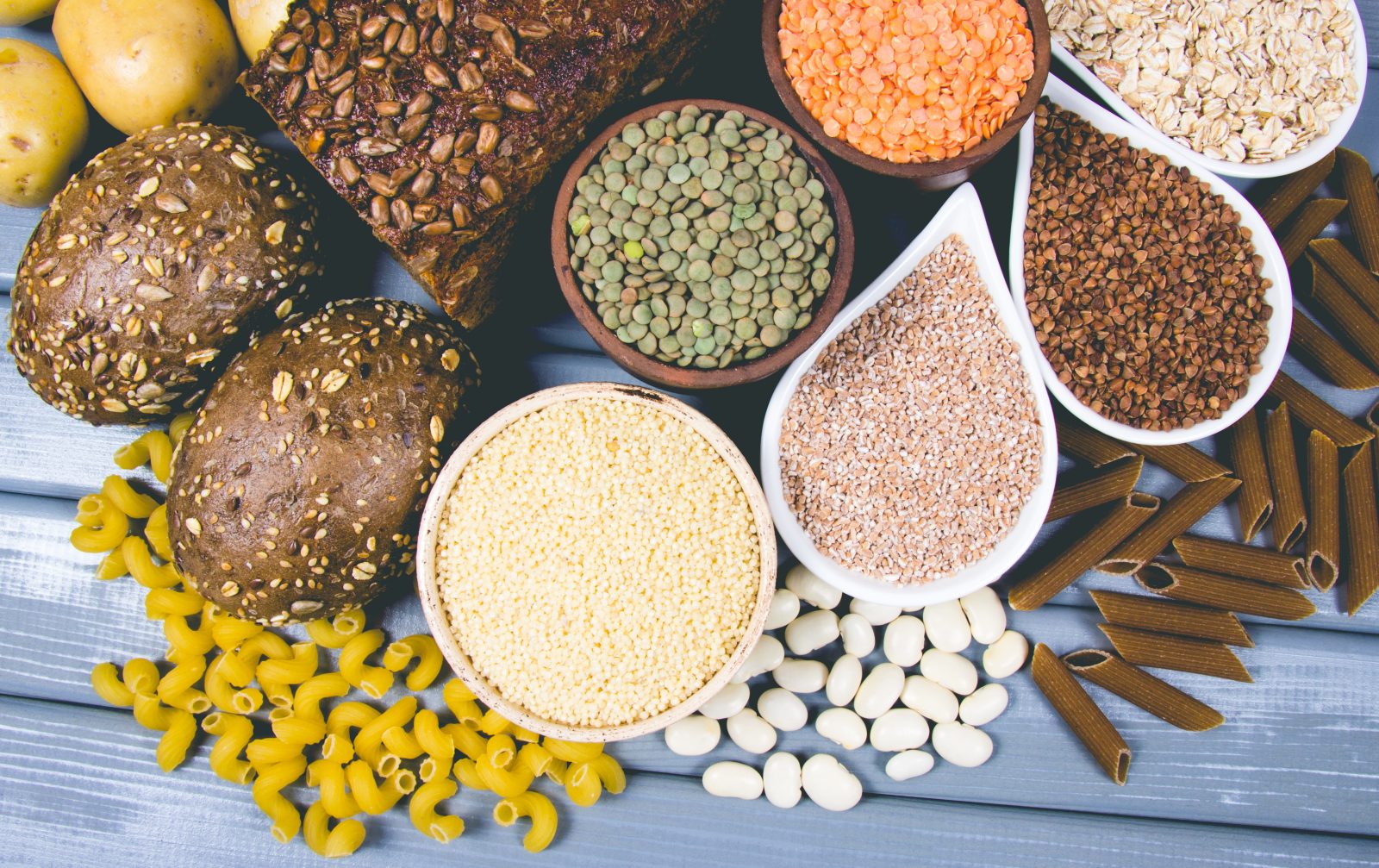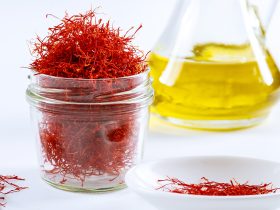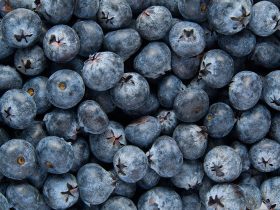Over the years, carbs have endured a tumultuous reputation in the realm of nutrition. Often vilified as the culprits behind weight gain and health conditions like type 2 diabetes, carbs have been unfairly painted with a broad brush.
While it’s true that processed carbs from sugary foods and refined grains can be detrimental to health due to their lack of essential nutrients, not all carbohydrates are created equal.
In fact, many high-carb foods are exceptionally nutritious and beneficial when consumed as part of a balanced diet. We decided to go over the 12 best high-carb foods you can add to your diet to have a truly healthy nutrition plan. Let’s get into it!
12 Very Healthy High-Carb Foods
When it comes to carbohydrates, the focus should be on nutrient density and the type of carb rather than avoiding them altogether.
Here are twelve high-carb foods that not only provide a substantial amount of carbohydrates but also pack a punch in terms of vitamins, minerals, fiber, and other health-promoting compounds:
- Oats: A Heart-Healthy Whole Grain
Perks:
- Oats are rich in fiber, particularly oat beta glucan, which has been linked to reduced cholesterol levels and improved heart health.
- They contain more protein than most grains, aiding in satiety and supporting muscle maintenance.
- Oats may help stabilize blood sugar levels, making them a beneficial choice for individuals with type 2 diabetes.
- Their high fiber content promotes digestive health and assists in weight management by prolonging feelings of fullness.
Considerations:
- While oats are generally well-tolerated, some individuals may experience digestive discomfort if consuming large quantities without adequate hydration.
- Chickpeas: Versatile Legumes Packed with Nutritional Goodness
Perks:
- Chickpeas are loaded with dietary fiber, which supports digestive health and promotes feelings of fullness.
- They are an excellent source of plant-based protein, making them a valuable addition to vegetarian and vegan diets.
- Chickpeas provide essential minerals like iron, phosphorus, and B vitamins, crucial for energy production and overall vitality.
Considerations:
- For some individuals, chickpeas may cause bloating or gas due to their fiber content. Start with smaller portions and gradually increase intake to minimize discomfort.
- Quinoa: A Nutrient-Packed Pseudocereal
Perks:
- Quinoa stands out for its impressive protein and fiber content, with cooked quinoa consisting of 70% carbohydrates. This combination makes it a satisfying option that supports satiety and digestive health.
- Quinoa is a powerhouse of minerals, including magnesium, manganese, phosphorus, and folate, essential for various bodily functions such as bone health, energy production, and DNA synthesis.
- For individuals with gluten sensitivity or celiac disease, quinoa provides a safe and nutritious alternative to wheat-based grains, offering a hearty texture and neutral flavor.
- Studies suggest that quinoa may aid in managing blood sugar levels due to its low glycemic index and fiber content.
- Its abundance of antioxidants and plant compounds contribute to improved heart health and reduced inflammation in the body. You can learn more about antioxidants and why they are so important from our comprehensive article on the subject.
Considerations:
- Rinse quinoa thoroughly before cooking to remove saponins, natural compounds that can impart a bitter taste. Use a fine mesh sieve and cold water for best results.
- While quinoa is nutrient-dense, portion control is essential due to its carbohydrate content, especially for individuals managing their carb intake for health reasons.
- Buckwheat: The Gluten-Free Powerhouse
Perks:
- Buckwheat is gluten-free and a complete protein, providing all essential amino acids necessary for muscle repair and growth.
- It’s packed with minerals and antioxidants, contributing to heart health and overall well-being.
- Research suggests buckwheat may aid in blood sugar regulation and reduce inflammation in the body.
Considerations:
- Buckwheat contains moderate levels of carbohydrates, making portion control important for those closely monitoring their carb intake.
- Beets: The Colorful Heart Health Boosters
Perks:
- Beets are rich in nitrates, which convert to nitric oxide in the body, promoting blood vessel dilation and enhancing athletic performance.
- They contain valuable vitamins, minerals, and antioxidants that protect against cell damage and support overall health.
- Consuming beets or beet juice may lower blood pressure and reduce the risk of cardiovascular diseases.
Considerations:
- Beets are moderately high in natural sugars, making portion control important for individuals managing blood sugar levels.
- Sweet Potatoes: Vibrant and Nutrient-Dense
Perks:
- Sweet potatoes are loaded with vitamin A, vitamin C, and potassium, vital for vision, immune function, and blood pressure regulation.
- They boast antioxidants that combat oxidative stress and inflammation, reducing the risk of chronic diseases.
- The fiber in sweet potatoes supports digestive health and contributes to feelings of fullness.
Considerations:
- Cooking methods, such as frying, can diminish some of the nutritional benefits of sweet potatoes.
- Oranges: Citrus Powerhouses Packed with Nutrients
Perks:
- Oranges are renowned for their high vitamin C content, which supports immune function and skin health. They also contain potent antioxidants like flavonoids and carotenoids, which help combat oxidative stress.
- Regular consumption of oranges may promote heart health by lowering blood pressure and reducing cholesterol levels.
- The vitamin C in oranges enhances the absorption of iron from plant-based foods, aiding in the prevention of iron deficiency anemia.
Considerations:
- While oranges are nutritious, their natural sugars can contribute to calorie intake if consumed excessively. Balance their consumption with other fruits and vegetables in your diet.
- Grapefruit: Tangy Fruit with Impressive Health Credentials
Perks:
- Grapefruit is known to improve heart health by lowering cholesterol levels and enhancing blood vessel function.
- Compounds found in grapefruit have shown promise in slowing the growth of cancer cells in preliminary studies.
- It’s a good source of vitamins A and C, potassium, and antioxidants, supporting overall health and immunity.
Considerations:
- Grapefruit can interact with certain medications, so individuals on prescription drugs should consult their healthcare provider before consuming it regularly.
- Bananas: Nature’s Portable Energy Boost
Perks:
- Bananas are rich in potassium, vitamin B6, and vitamin C, supporting heart health, nerve function, and immune system function.
- They provide quick energy due to their natural sugars, making them an ideal pre or post-workout snack.
- Resistant starch and pectin in unripe bananas promote digestive health by feeding beneficial gut bacteria.
Considerations:
- Individuals with diabetes should monitor their intake of ripe bananas due to their higher sugar content.
- Apples: Crunchy Delights Packed with Nutrients
Perks:
- Apples are a good source of dietary fiber, promoting digestive health and aiding in weight management.
- They provide a modest amount of vitamin C, essential for immune function and skin health.
- Regular consumption of apples has been associated with improved blood sugar control and a reduced risk of heart disease.
Considerations:
- Apples are among the fruits that may carry pesticide residues, so opt for organic varieties when possible, especially if eating the peel.
- Kidney Beans: Protein-Packed Legumes with Impressive Health Credentials
Perks:
- Kidney beans are a powerhouse of plant-based protein and fiber, supporting muscle health and digestive function.
- They contain antioxidants like anthocyanins and isoflavones, known for their anti-inflammatory properties and potential to reduce the risk of chronic diseases.
- Regular consumption of kidney beans may help stabilize blood sugar levels, making them beneficial for individuals with diabetes.
Considerations:
- Proper cooking is essential to reduce lectins, natural compounds that can cause digestive discomfort and hinder nutrient absorption.
- Tiny Berries, Massive Health Benefits
Perks:
- Blueberries are packed with antioxidants like anthocyanins, which protect cells from damage and may contribute to reducing the risk of chronic diseases.
- Research indicates that regular consumption of blueberries may improve cognitive function, especially in older adults.
- They are rich in vitamin C, vitamin K, and manganese, essential for bone health, blood clotting, and metabolism.
Considerations:
- Despite their health benefits, blueberries contain natural sugars that can affect blood sugar levels, so moderation is key, especially for individuals managing diabetes.
















Find Us on Socials